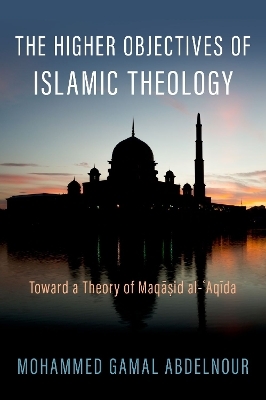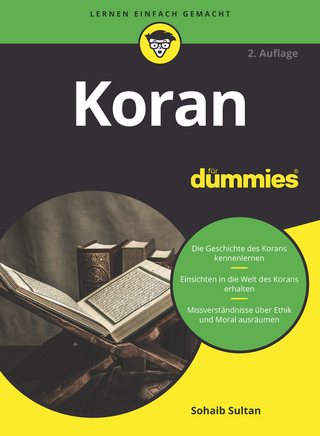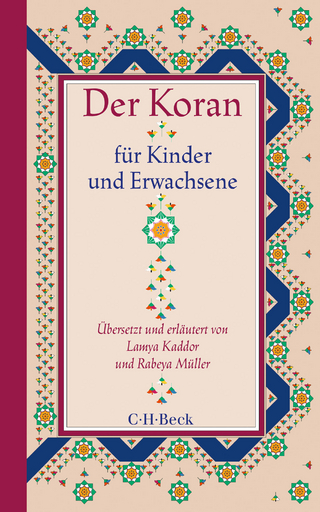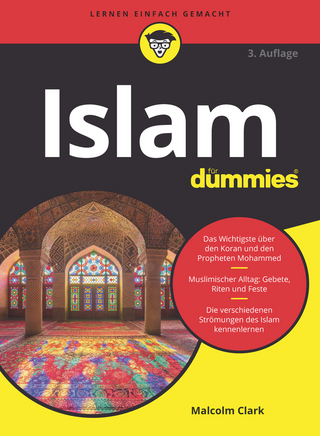
The Higher Objectives of Islamic Theology
Oxford University Press Inc (Verlag)
978-0-19-764863-6 (ISBN)
In the Islamic tradition, fiqh (Islamic law) is generally regarded as the science of furū'al-dīn (matters complementary to the Islamic faith), as opposed to kalām (Islamic theology) which is known as the science of uṣūl al-dīn (matters primary to the Islamic faith). Over time, however, fiqh has significantly surpassed Kalām in terms of cognitive maturation and epistemic development. In The Higher Objectives of Islamic Theology, Mohammed Gamal Abdelnour argues that far too little attention has been paid to parallel developments in Islamic theology. Consequently, the theological project in the Islamic tradition has largely become limited to definitions and deliberations about the nature and qualities of the transcendent God, and has barely developed as a systematic discipline devoted to the higher objectives of Islamic theology, similar to those of Maqāṣid al-Sharī?a (higher objectives of Islamic law).
Addressing this gap and drawing on the full-fledged genre of Maqāṣid al-Sharī?a, this study aims to develop a genre of Maqāṣid al-?Aqīda (higher objectives of Islamic theology) based on a scheme of core values (Truth, Justice, Beauty), instead of a scheme of ḥudūd (penalties). Arguing that the tradition's current overemphasis on law (Justice) has relegated both theology (Truth) and Sufism (Beauty) to the periphery of the tradition, Abdelnour illustrates how this marginalisation of theology and Sufism leaves less room for an "ethical Islam" and instead prioritises "legal" and "political Islam." In shifting the focus from law to theology, the book thereby grapples with such questions as: why did Islamic theology fail to develop a systemic genre of Maqāṣid al-?Aqīda? How do we chart out a map to guide the process of founding such an area? In what ways can the emerging Maqāṣid al-?Aqīda benefit from the well-established Maqāṣid al-Sharī?a? What are the ramifications of having an underdeveloped theology?
Mohammed Gamal Abdelnour is a tenured faculty member at Al-Azhar University, Cairo and a postdoctoral research associate at the University of York.
Acknowledgments
Transliteration and Dating
Introduction
-Important Definitions and Clarifications
-Monograph's Epistemological Paradigm
-Key Arguments
-Structure of the Monograph
-Important Caveats
Chapter I. Historical Roots of Maqasid al-'Aqida
-Maqasid al-'Aqida before al-Ghazali
-Al-Ghazali's Contributions to Maqasid al-'Aqida
-Maqasid al-'Aqida after al-Ghazali
-Muhammad 'Abduh's Contributions to Maqasid al-'Aqida
-Explaining the Underdevelopment of Maqasid al-'Aqida
Chapter II. Sources and Methods of Maqasid al-'Aqida
-The Qur'an and Maqasid al-'Aqida
-The Sunna and Maqasid al-'Aqida
-Maqasid al-'Aqida between Exotericism and Esotericism
Chapter III: Towards a Theory of Maqasid al-'Aqida
-"Interrogating" the Classical "Theory" of Maqasid al-Shari'a
-"Generating" the Higher Objective/s of Islamic Theology
-Is Islam the Only Valid Path to the Truth?
Chapter IV: "Integrating" the "Tools" of Maqasid al-Shari'a into Maqasid al-'Aqida
-Definition and Transmission
-Al-Firqa al-Najiya between al-Daruriyyat, al-Hajiyyat, and al-Tahsiniyyat
-Faith vis-à-vis Deeds between al-Daruriyyat, al-Hajiyyat, and al-Tahsiniyyat
-Prophet Muhammad between al-Daruriyyat and al-Hajiyyat
Chapter V: Why Does Maqasid al-'Aqida Matter?
-Al-Ghazali's Maqasidi-oriented Approach and Treating the Wahhabi-Shiite Conflict
Conclusions
Way Forward
Bibliography
| Erscheinungsdatum | 03.10.2022 |
|---|---|
| Reihe/Serie | AAR REFLECTION AND THEORY STU RELIGION |
| Verlagsort | New York |
| Sprache | englisch |
| Maße | 240 x 163 mm |
| Gewicht | 422 g |
| Themenwelt | Geisteswissenschaften ► Religion / Theologie ► Islam |
| ISBN-10 | 0-19-764863-0 / 0197648630 |
| ISBN-13 | 978-0-19-764863-6 / 9780197648636 |
| Zustand | Neuware |
| Haben Sie eine Frage zum Produkt? |
aus dem Bereich


